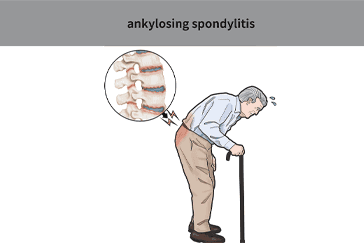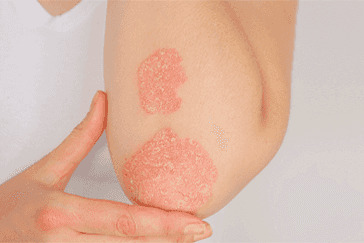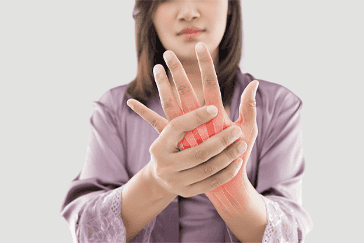
joint pain

These Might be of Interest

why is joint pain a common problem?
Content is medically reviewed by:
Shruti Bangera, Masters In Neurological Physiotherapy, Senior Physiotherapist & SME, Portea
Joints provide you with the support that you require during movements by forming the connection between your bones. An injury or a disease can affect these joints, causing pain and restricting your mobility. It is a condition mostly prevalent among the older population. However, strain, overexertion and the rigours of modern lifestyle have made it a rather common problem in today’s times.
common causes of joint pain
Let us have a look at the main causes which lead to Joint pain:
Inflammation of the lining of the joint
In case of a relapse of an already sustained injury to the joint, there exists a possibility of the thin tissue layer lining the joints and the tendons getting inflamed. This condition, known as traumatic synovitis, generally does not cause redness but could be a reason for your joint pain.
Hemarthrosis
Hemarthrosis is a condition that is marked by bleeding in the spaces between the joints. While breaking of the blood vessels around the affected joint eventually causes the bleeding, the haemorrhage inside the joints usually leads to inflammation and joint pains.
Gout
Gout initially affects the joint of the big toe before spreading to the other joints. The skin on top of the affected joint becomes red and tender to the touch, with persistent pain being the constant harrow. Pseudo-gout is also a similar problem, except the fact it generally affects the knee joint initially.
Damaged knee-cap
Another good reason for that niggle in the joint, Chondromalacia patellae is a condition in which the cartilages at the back of the kneecap soften and deteriorate with time. Though this is a common condition among athletics, it can also manifest in the elderly, suffering from arthritis.
STDs
Sexually transmitted diseases (STDs) such as gonorrhea or chlamydia can also cause mild to moderate pain in the joints. Gonorrhea is caused by bacteria that are spread during (mostly unprotected) sexual intercourse. These bacteria can affect one or more of the body’s joints, making them red, swollen and painful. Chlamydia is a common infection that causes reactive arthritis (caused by inflammation).
Accidental Injury
You can experience a sudden pain in the joint if you hurt yourself accidentally, for example, a broken wrist, arm, ankle, leg or a hip fracture.
how can we help?
Our experienced and specialised physiotherapists are trained in treating joint pain, both acute and chronic. They will visit you at home to better analyse and examine your condition. A treatment plan will be formulated following the initial assessment. With physiotherapy and proper medicine, your joint pain can be effectively managed.
Doctor Consultation
Nursing
Physiotherapy
Trained Attendant
Elder Care
Mother & Baby Care
Lab Tests
Medical Equipment
Speciality Pharma
Critical Care










